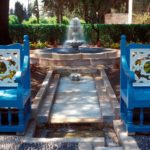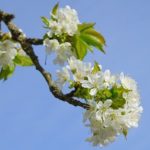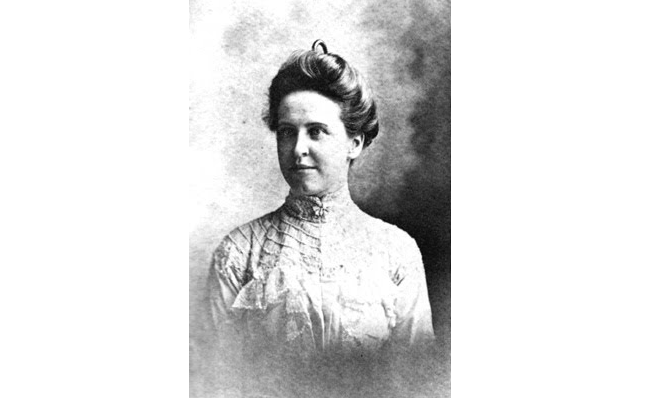
Tablet of Wisdom: dimensions of a life of wisdom
 In the Tablet of Wisdom we have already seen an exploration of the harmony of science and religion. This article seeks to explore some of the ways we might understand “wisdom” from the discourse that Bahá’u’lláh unfolds in this work.
In the Tablet of Wisdom we have already seen an exploration of the harmony of science and religion. This article seeks to explore some of the ways we might understand “wisdom” from the discourse that Bahá’u’lláh unfolds in this work.
Initially we may observe that part of wisdom is to appreciate that there is more to reality that the purely material world.
When the eyes of the people of the East were captivated by the arts and wonders of the West, they roved distraught in the wilderness of material causes, oblivious of the One Who is the Causer of Causes, and the Sustainer thereof, while such men as were the source and the wellspring of Wisdom never denied the moving Impulse behind these causes, nor the Creator or the Origin thereof.[1]
An understanding of our need for divine guidance is indeed “the beginning of Wisdom”:
The beginning of Wisdom and the origin thereof is to acknowledge whatsoever God hath clearly set forth, for through its potency the foundation of statesmanship, which is a shield for the preservation of the body of mankind, hath been firmly established.[2]
Another dimension of wisdom emerges from Bahá’u’lláh’s observations on the content of scientific or philosophical endeavour. Bahá’u’lláh unfolds a discussion of the question of whether the universe has always existed or whether it was created at a certain point. This discourse refers to a long debate in philosophy in the Islamic world. In this context we also find a discussion of the Word of God and its role in the creation of the universe.[3] Yet Baha’u’llah draws us away from this discourse.
It ill beseemeth thee to turn thy gaze unto former or more recent times. Make thou mention of this Day and magnify that which hath appeared therein. It will in truth suffice all mankind. Indeed expositions and discourses in explanation of such things cause the spirits to be chilled. It behooveth thee to speak forth in such wise as to set the hearts of true believers ablaze and cause their bodies to soar.[4]
But perhaps the most moving dimension of wisdom in the Tablet of Wisdom is Bahá’u’lláh’s discourse on a life of wisdom, particularly in relation to our fellow human beings.
O peoples of the world! Forsake all evil, hold fast that which is good. Strive to be shining examples unto all mankind, and true reminders of the virtues of God amidst men. He that riseth to serve My Cause should manifest My wisdom, and bend every effort to banish ignorance from the earth. Be united in counsel, be one in thought. Let each morn be better than its eve and each morrow richer than its yesterday. Man’s merit lieth in service and virtue and not in the pageantry of wealth and riches. Take heed that your words be purged from idle fancies and worldly desires and your deeds be cleansed from craftiness and suspicion. Dissipate not the wealth of your precious lives in the pursuit of evil and corrupt affection, nor let your endeavors be spent in promoting your personal interest. Be generous in your days of plenty, and be patient in the hour of loss. Adversity is followed by success and rejoicings follow woe. Guard against idleness and sloth, and cling unto that which profiteth mankind, whether young or old, whether high or low. Beware lest ye sow tares of dissension among men or plant thorns of doubt in pure and radiant hearts.
O ye beloved of the Lord! Commit not that which defileth the limpid stream of love or destroyeth the sweet fragrance of friendship. By the righteousness of the Lord! Ye were created to show love one to another and not perversity and rancor. Take pride not in love for yourselves but in love for your fellow-creatures. Glory not in love for your country, but in love for all mankind. Let your eye be chaste, your hand faithful, your tongue truthful and your heart enlightened.[6]
Here in the context of the history of philosophy we find Bahá’u’lláh guides us to a practical philosophy and wisdom grounded in love for our fellow human being. And in these brief passages we find some of Bahá’u’lláh’s most beautiful teachings.
(This article is the 159th in a series of what I hope will be 200 articles in 200 days for the 200th anniversary of the birth of Bahá’u’lláh. The anniversary is being celebrated around the world on 21 and 22 October 2017, The articles are simply my personal reflections on Bahá’u’lláh’s life and work. Any errors or inadequacies in these articles are solely my responsibility.)







